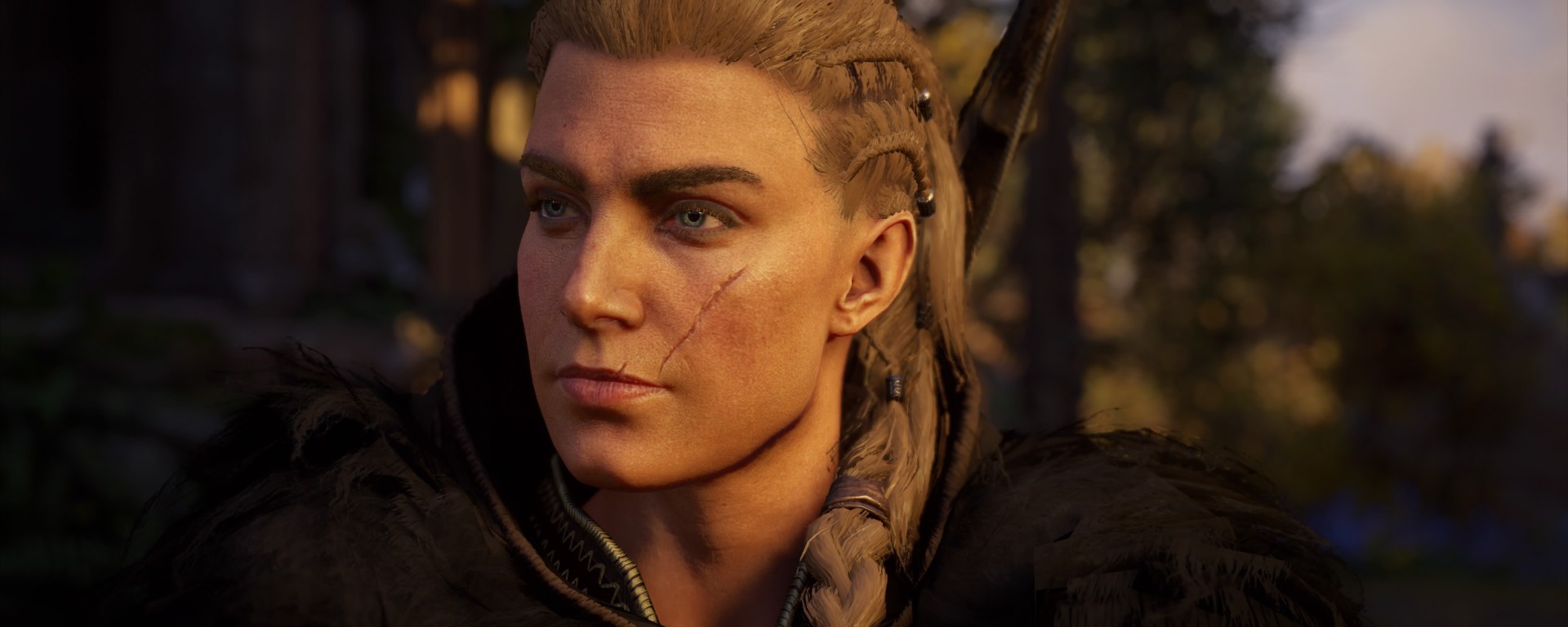2020’s…malarkey did not keep me from playing a slew of games. In fact, amidst the year’s uncertainties and hazards, I found myself turning more to video games–I sought distraction, solace, and even inspiration in the worlds I explored, which is why I decided to take some time looking back at the biggest games (in terms of open world RPGs) I played in 2020.
Note: this blog post is a space for me to reflect on games and some spoilers do follow.
Assassin’s Creed Valhalla (PS5)
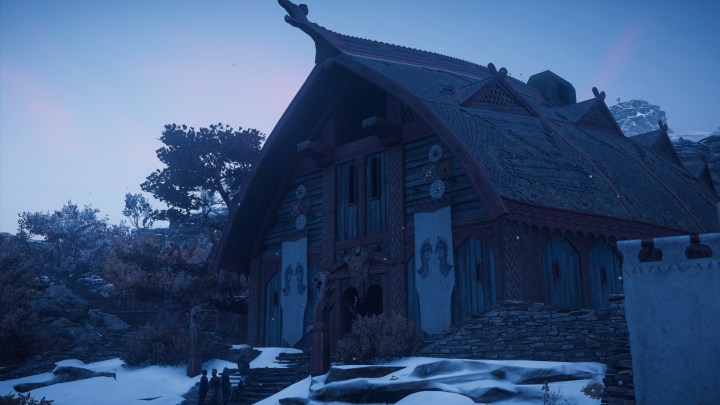
One of my favorite video games is Assassin’s Creed IV: Black Flag. It was also the first AC game I played all the way through. I had an awesome experience with it! I mean, come on. Pirates! I went on to play Syndicate and Origins, which I generally enjoyed. So when I heard about Valhalla, I was curious to see what Ubisoft would do with Vikings and 9th century England.
Unfortunately, Valhalla does suffer from some serious pacing issues (the repetitive gameplay loop was especially noticeable mid to late game), lackluster character development (seriously, why does Basim suddenly shift? the writing for his character is a bit of a mess), and bugs. It feels like a step back for the series on several fronts; however, I still enjoyed exploring the British countryside and beyond (Vinland was my favorite side location to visit), learning about Vikings, and sharing Eivor’s story.
Initially, I was worried the Viking way of life might not mesh well with assassins and stealth, but considering the franchise’s shifting combat system and non-stealth options for approaching missions, Vikings + Assassin’s Creed worked just fine. And base-building was a welcome addition to the franchise as I think it added depth to Eivor and her community, allowing for more Viking stories to be told and side characters to shine.


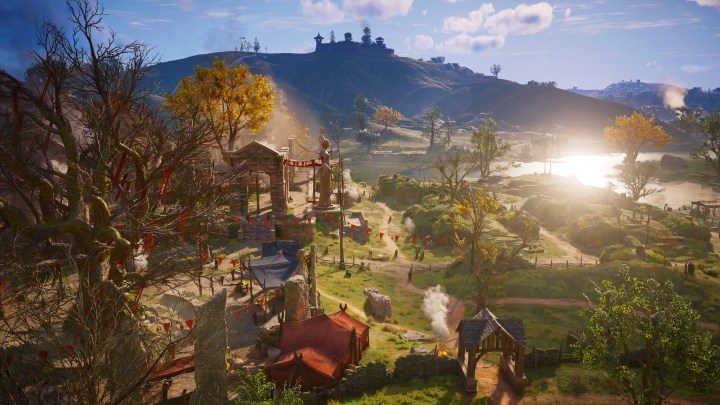

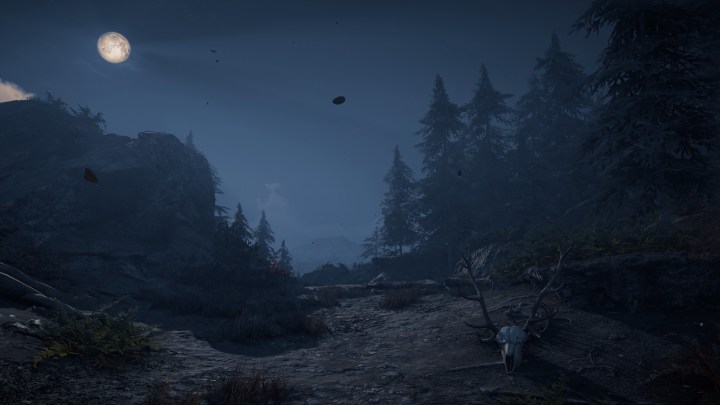
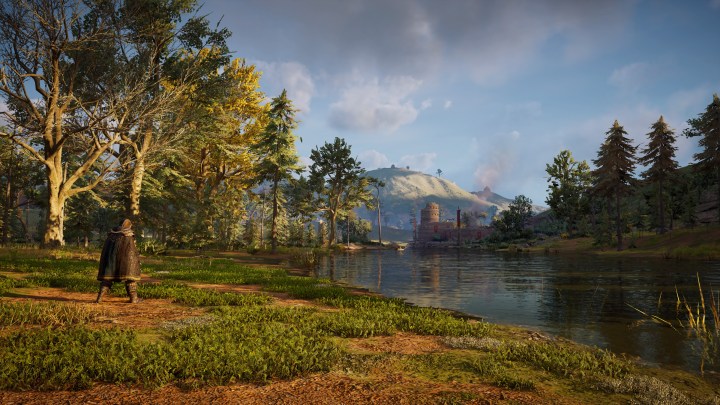
While there is plenty to enjoy in Valhalla, the bugs, pacing issues, and side quest system were at times frustrating. It is interesting to track the subtle changes and new systems Ubisoft introduces across their franchises, and we can see the continued development of some of those systems here (such as combat and the way side quests work). It often takes Ubisoft a few iterations to really nail down those systems, and I think that’s true with Valhalla. My hope is that the next AC will reflect a tighter narrative experience. I do not necessarily want open world games to be smaller, but I would like to see more thoughtfully developed and paced main campaigns.
If you enjoy massive worlds, history, political betrayal and in-fighting, Valhalla might be worth checking out!
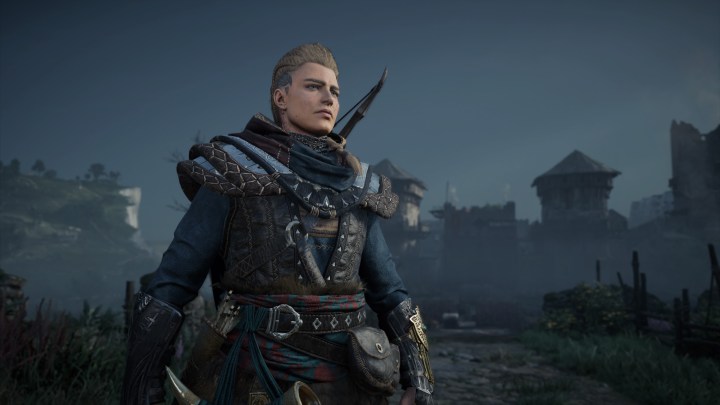
Cyberpunk 2077 (PS5)
“Night City is a city of shadows” ~ Kerry Eurodyne
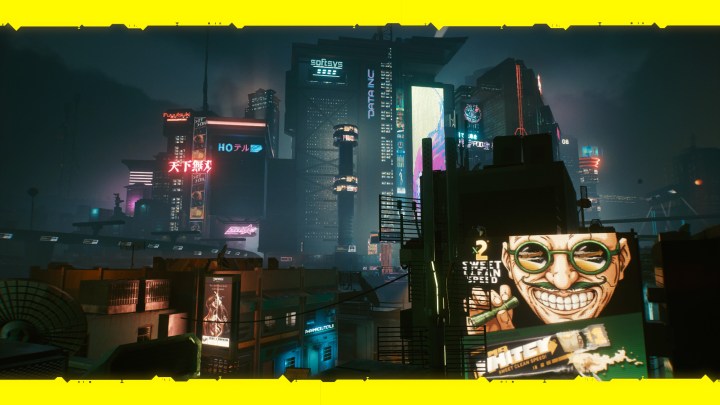
Much can be said about Cyberpunk 2077. In this post, I will try to limit myself to the experiences I had with the game and avoid the chaotic and unreasonable Gamer™ discourse inundating the Internet. After playing 113 hours and getting platinum, I can say that Cyberpunk 2077 does little exceptionally well. At it’s best (yes, even if you strip the dozens upon dozens of bugs and the crashes–I stopped counting after 20 crashes within my first five days of play), the game is an average open world RPG with a cyberpunk aesthetic laid over familiar systems and tropes. For the record, I acknowledge that Cyberpunk 2077 has been rightfully criticized for its representation of marginalized people, and I agree with much of that criticism, but I will not be commenting on that here–perhaps in a future post.
In some ways, it is difficult for me to write about Cyberpunk 2077 without pointing out its flaws or separating my experience from them. I went into the game cautiously optimistic and hoping for an exciting world. Night City ended up being a lifeless and uninspiring location where NPCs say and do little and the streets become a repetitive loop of advertisements and over the top imagery, which, at times, comes across as more immature than adding to any critical perspective or questioning of corporate greed. And that’s such a shame considering the main story is an exciting and tight narrative experience. CDPR’s The Witcher 3 is lauded for its story (both the main story and side quests) and some of that same quality of story-telling is apparent here, but even the narratives running through this city of neon lights struggle at times to feel satisfying. While many of the characters are interesting, some of their stories end abruptly, with little of substance to really show for the effort put into assisting them through their troubles.
And that leads to one of my biggest critiques of Cyberpunk 2077–the game feels underdeveloped in a multitude of ways. Again, bugs and crashes aside, some systems in the game are not fully realized. For example, CDPR seemed excited to announce the game would include racing. The racing felt like an afterthought–I would not be surprised to learn it was either a late addition to the game or a rush job. Driving in the game is loose when you are cruising Night City normally, but the racing is a joke. The game “cheats,” always ensuring your opponents are never too far behind regardless of your skill behind the wheel. And the race in the Badlands felt especially floaty and just…bad. The vehicle’s control poorly and do not really feel like they make contact with the ground. Unlike other games that involve racing during quests and also introduce racing as an optional activity in the world, Cyberpunk 2077 only includes racing as part of Claire’s side missions. This added to my sense that racing was never a significant part of the game.

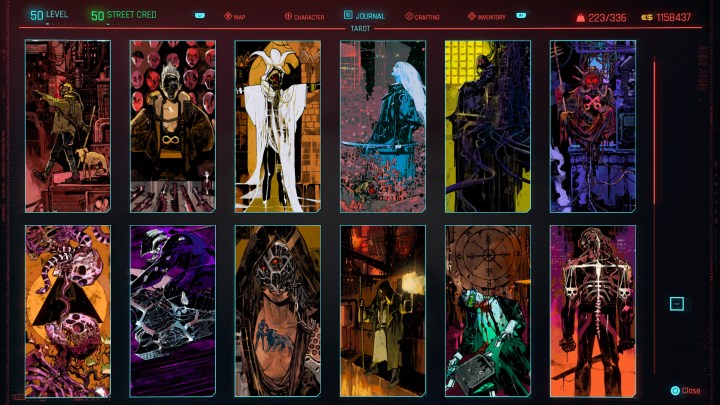


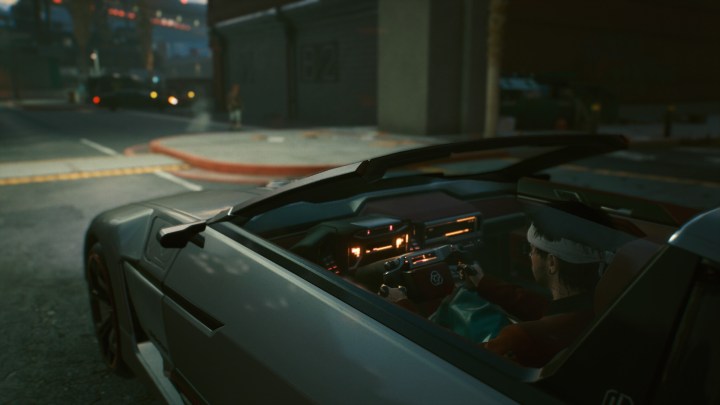
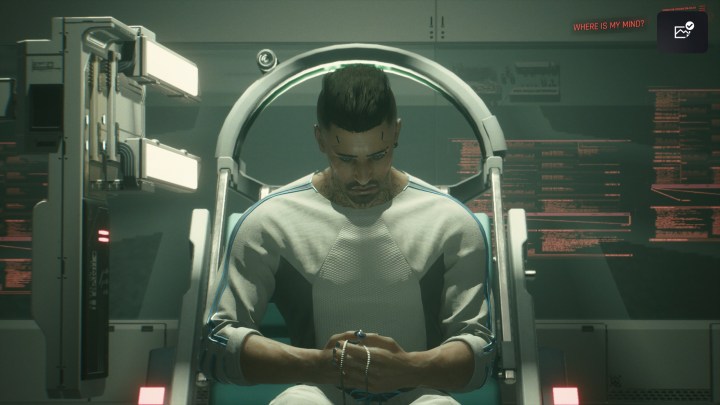
Continuing with the pattern of under-realized and incomplete elements in the game, the life paths were especially disappointing. Aside from some dialogue options that have no real impact on the world or its stories, the life paths are incidental. I do believe the life paths were meant to be a far more significant part of the story (based on the game’s advertising), and the Nomad life path seemed the most fleshed out and connected to the world. I have to wonder if the life paths were developed further but were pulled way back in development (perhaps due to issues with their implementation or due to the demands of meeting a deadline). Regardless, I never felt like V was really my V, and as a result, I felt like a passing visitor in Night City as opposed to a resident with a history.
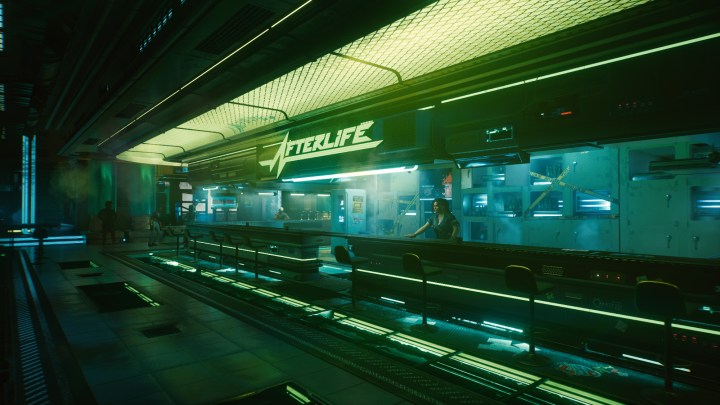
When I first beat the main story after 28 hours, I was left wanting more. And after playing through alternate endings and completing everything on the map that feeling did not change, which speaks to both the game’s faults and strengths. I experienced all that Cyberpunk 2077 had to offer and wished for a more fully realized and developed world, a world with depth. To be clear, I did not need the game to offer anything revolutionary, but I did expect a well-crafted game (with maybe the same level of issues as The Witcher 3 had at launch). At the end of two weeks, I put in over 100 hours because I did get something out of the game. The foundation of a really good game is there–a large open world, a relatively strong main story, the potential for a wide range of intriguing characters, a variety of activities, and a city that could be really atmospheric and unique with some work. I will be curious to see where Cyberpunk 2077 stands in a year.
Ghost of Tsushima (PS4)
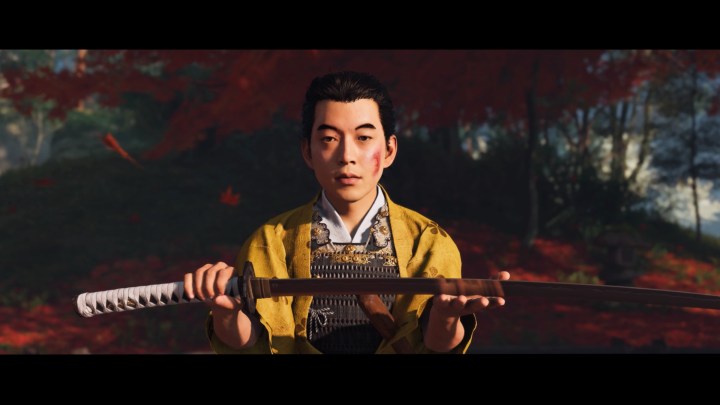
The last game on my list is not only a gem compared to the previous titles but is my game of the year. I played Ghost of Tsushima at launch, knowing little about it or Sucker Punch’s previous games, but quickly fell in love. I do not throw around the word “love” lightly, but I thoroughly enjoyed every minute of my nearly 90 hour playthrough. Playing Ghost gave me that rare magical feeling that’s hard to put into words–a feeling I have only felt a few times when playing video games. The game is well designed, and I experienced it at the right time for me. Ghost offers gorgeous environments, a protagonist caught between tradition and a newer path necessary to fight an overwhelming foe, excellent voice acting, and challenging but accessible combat.

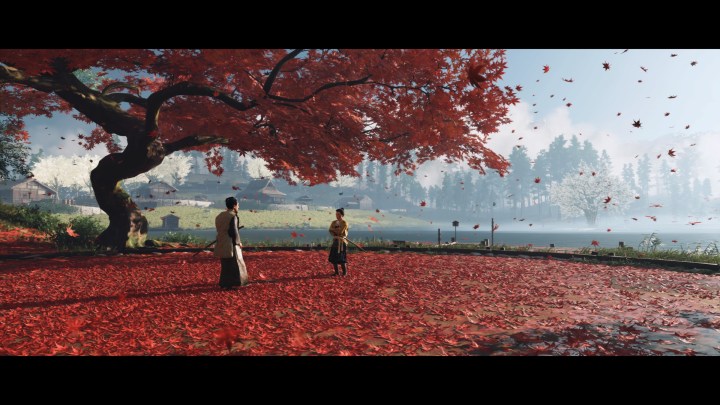
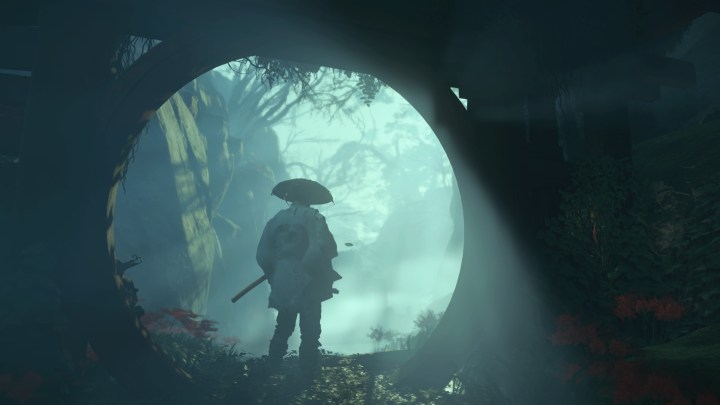
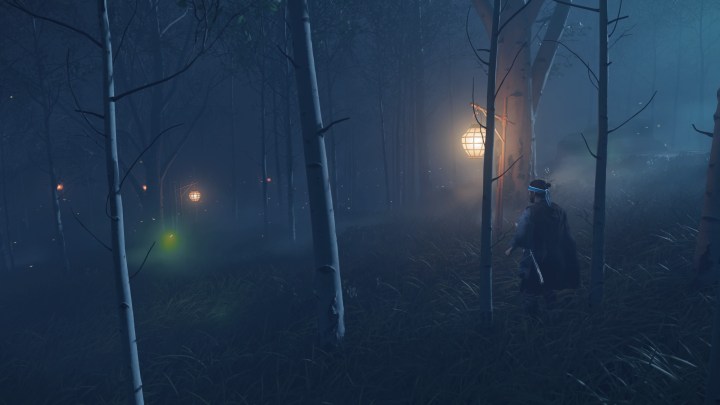

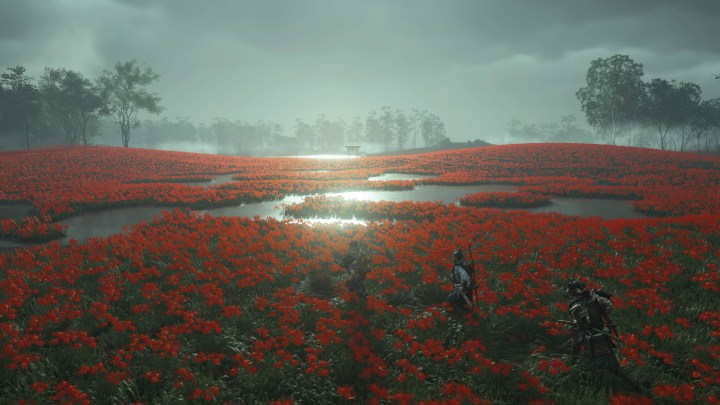
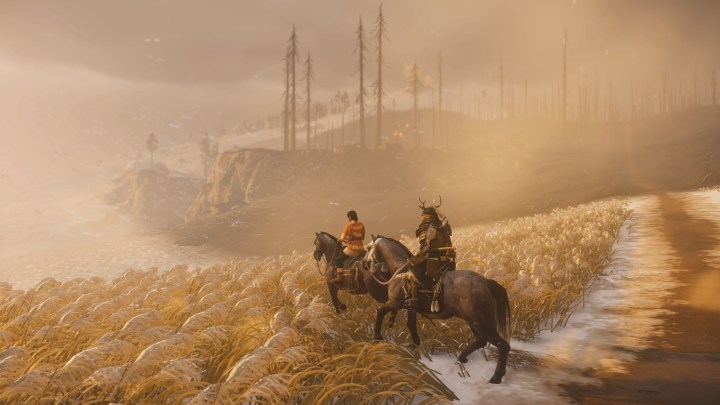
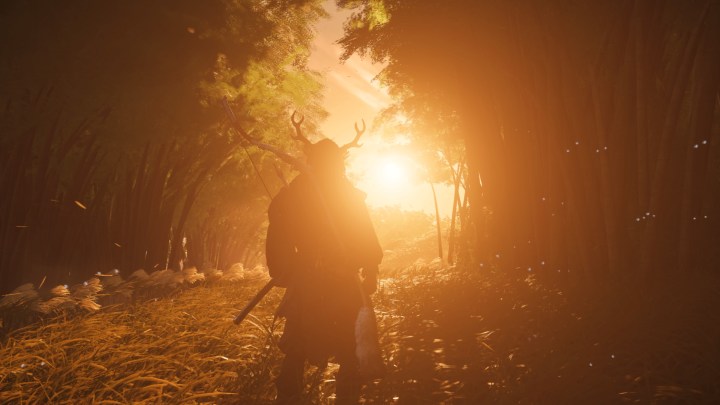
Ghost tells the story of Jin Sakai, a samurai tasked with leading a resistance to reclaim the Island of Tsushima from Mongol invaders. “The Ghost” must reclaim outposts, assist a cast of characters, and complete a variety of tasks during his journey. Jin is a likable character and one who struggles throughout the course of the game. Some of his inner struggles are relayed through flashbacks to his youth, and these cutscenes and gameplay segments always added depth to an already strong story. Jin and his choices are interesting and so are the involved side quests for characters like Yuna and Sensei Ishikawa. Unlike some games where character-driven side quests can feel disjointed from the main story, Yuna’s and Sensei Ishikawa’s stories connected back to Jin and his mission to defeat the Mongols.
Initially, I was concerned about the game’s combat system. Would it be Dark Souls-like? Fortunately for me, the combat was not difficult to master and the four stances (which are easy to switch between) offered nice variety against the various enemies. Dodging, parrying, and special weapons help move the combat beyond simple hack and slash, as do the armor and charm options. Combat felt satisfying whether I was using a sword or a longbow. It was also easy to switch between stealth and combat, and I felt the game provided enough flexibility for completing missions.
The Island of Tsushima is gorgeous. I cannot stress that enough (the above screenshots speak for themselves). I was pulled into landscapes that are beautifully shaped and crafted to call upon your inner explorer. I wanted to see everything the world offered, making Ghost an easy platinum. And when I was finished, I was sad to have completed everything (since then, a major update has added a New Game + and online mode, so there is even more to experience). I was constantly stopping to take screenshots–of the world, of characters, of animals, of the menu system. The game is wonderfully detailed and visually pleasing, to the point that I enjoyed the menu system and loading screens. I rarely give a game’s menu system a second thought unless it is designed poorly, but with Ghost I noticed the menus because they were well-designed and beautiful.

All-in-all, Ghost of Tsushima is an obvious standout for me. The story is engaging, and I was eager to see Jin’s story through. There is a lot that I could say about this game, but I am going to hold back on my excitement and potential spoilers and cut myself off. The game is a delight and an easy recommendation.


